Bernard Herrmann (1911–1975) is best known for his film music, particularly for Alfred Hitchcock’s evocative thrillers. His first film score was for Orson Welles’ Citizen Kane (1941) and one of his last was for Martin Scorsese’s Taxi Driver (1976). Before his film work, he wrote a number of orchestral works, with his first a tone poem, The Forest, in 1929.
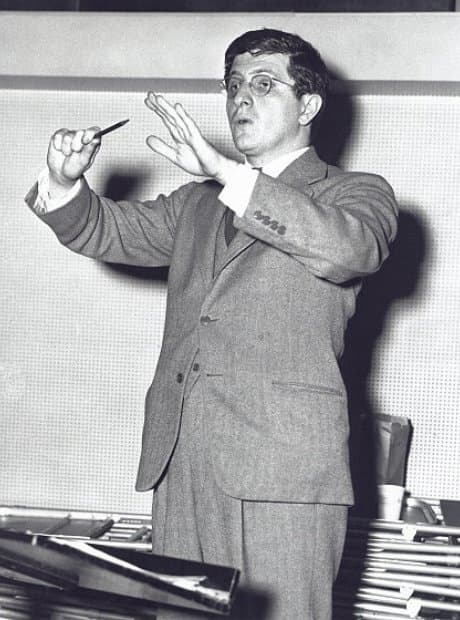
Bernard Herrmann
In 1951, in the middle of writing music for The Day the Earth Stood Still, he finished an opera based on Emily Brontë’s novel Wuthering Heights. He had started it in 1943 while working on Jane Eyre, the film based on Emily’s sister Charlotte’s novel.
The opera, Herrmann’s only work in the genre, was never staged in his lifetime, although he made several attempts at getting it produced. It was considered by conductors Julius Rudel and Sir John Barbirolli, the San Francisco Opera, and the Heidelberg Opera but was dropped each time. Sometimes it was a conductor insisting on changes or cuts or daunted by the enormous orchestra that was called for. Whatever reason, it was only seven years after Herrmann’s death that an abbreviated version, missing 40 to 50 minutes, was staged by Portland Opera. In addition to the cuts, Portland also changed the ending to include the upbeat ending that Julius Rudel had wanted to add but that Herrmann had refused.
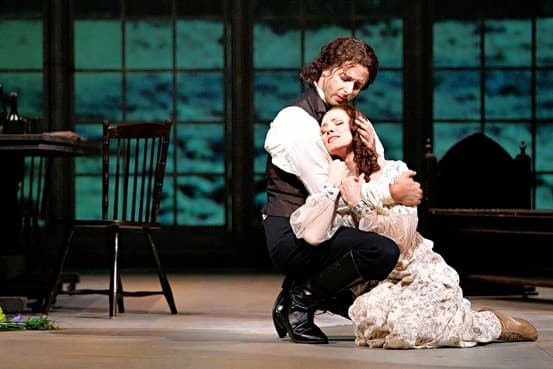
Sara Jakubiak and Lee Poulis in Wuthering Heights, 2011, Minnesota Opera (Photo by Michael Daniel)
Herrmann was able to conduct the full opera for a recording in 1966.
A concert version was done in France in 2010, under the title Les Hauts de Hurlevent.
Finally, in 2011, on the centenary of Herrmann’s birth, Minnesota Opera staged the full opera and recorded it in HD. Its European premiere was in 2015 with Braunschweig Opera, done as a live broadcast, but with some critical cuts, including the prologue that’s supposed to make a full circle with the epilogue.
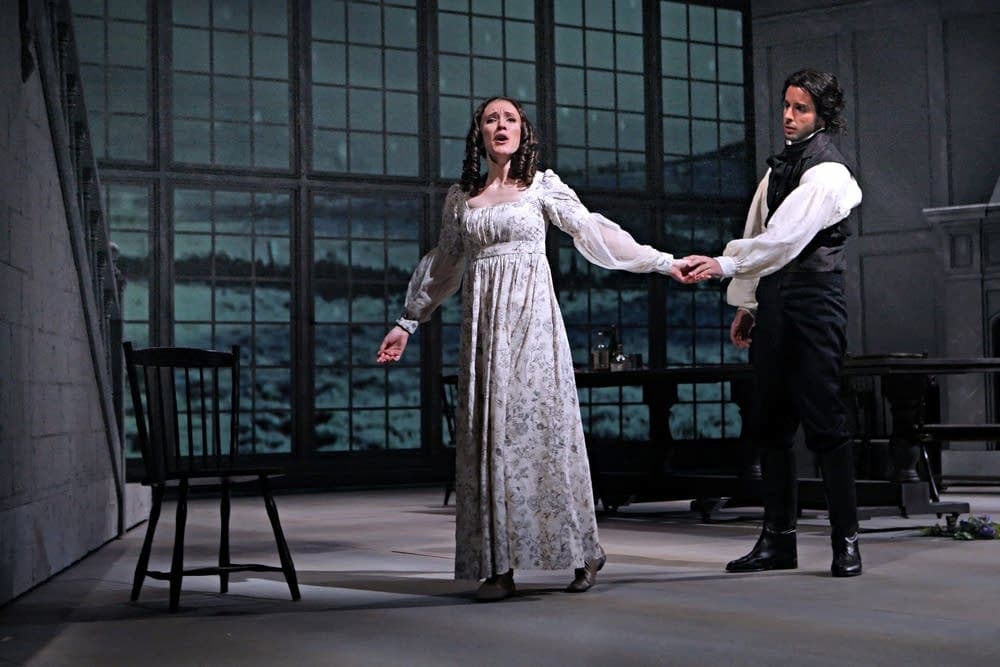
Sara Jakubiak and Lee Poulis in Wuthering Heights, 2011, Minnesota Opera (Photo by Michael Daniel)
The opera, however, remains a difficulty. The original novel is structurally awkward, with sometimes as many as 6 narrators telling the story over ‘a complicated sequence of extended time periods’ and so Herrmann’s story focused on the relationship between the doomed lovers. As much as Herrmann was able to create an atmosphere in Hitchcock’s thrillers when he can apply it to his own imagination, it takes us to those wind-blown moors and over-blown emotions of the characters.

Hans Sørensen
Hans Sørensen, the director of Artistic Planning for the Singapore Symphony Orchestra, took the unwieldy mass of Herrmann’s original score and created the Suite from ‘Wuthering Heights’. The original opera had 8 solo voices and these were reduced to 2 voices, Cathy’s and Heathcliff’s; the massive orchestra was pared down to a more reasonable 73 players plus percussion.
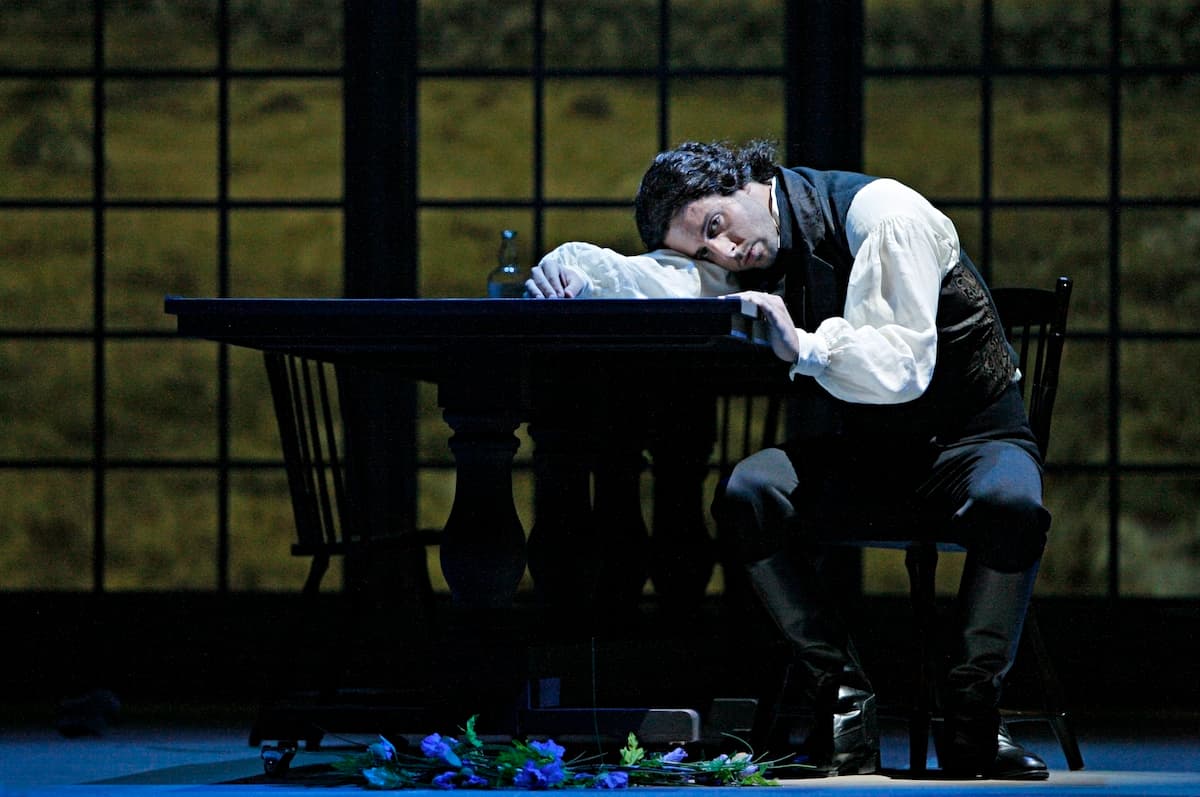
Lee Poulis in Wuthering Heights, 2011, Minnesota Opera (Photo by Michael Daniel)
Sørensen’s edit follows Herrmann’s original storyline but cuts it down to an hour. The opera opens, as does the book, with Heathcliff wandering around his house, Wuthering Heights, in a storm calling for the ghost of Cathy.
Bernard Herrmann: Wuthering Heights Suite (arr. H. Sorensen for 2 voices and orchestra) – I. Prologue: The Snow and Wind – Oh, Cathy! Come in. Oh, come In (Roderick Williams, Heathcliff; Singapore Symphony Orchestra; Mario Venzago, cond.)
After this prologue, the opera immediately jumps back 20 years when Heathcliff and Cathy, the adopted son and his sister, look at nature and express their love.
Bernard Herrmann: Wuthering Heights Suite (arr. H. Sorensen for 2 voices and orchestra) – I. Act I Scene 1: I have been wandering through the green woods (Keri Fuge, Cathy; Singapore Symphony Orchestra; Mario Venzago, cond.)
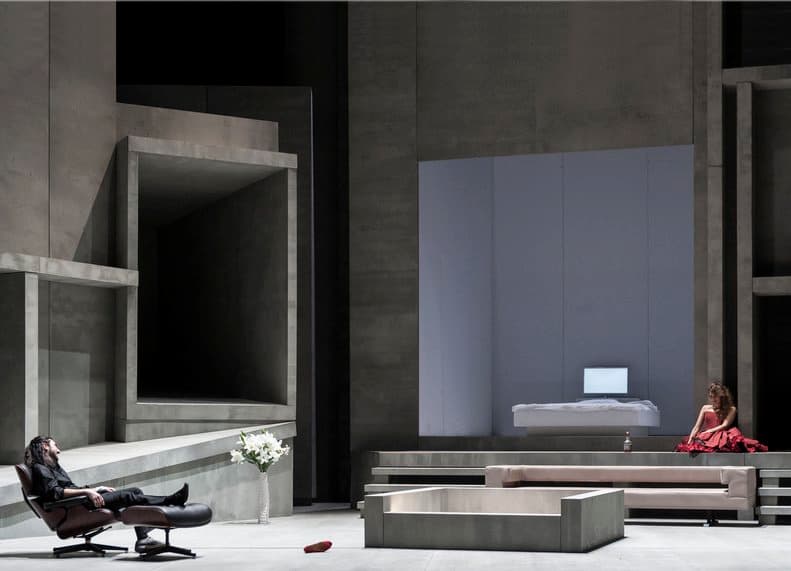
Orhan Yildiz and Solen Mainguené in Wuthering Heights, 2015, Braunschweig Opera (Photo by Volker Beinhorn)
Herrmann uses the orchestra to show the deepening emotions of the couple – as Cathy sings of her passion for home the orchestration warms. As she sees Heathcliff after her long illness after getting lost on the moors, the texture becomes richer. She asks Heathcliff ‘How many years do you mean to live after I’m gone?’ and she sings in an unnaccompied style.
Bernard Herrmann: Wuthering Heights Suite (arr. H. Sorensen for 2 voices and orchestra) – VIII. Act IV: Heathcliff – Heathcliff (Keri Fuge, Cathy; Roderick Williams, Heathcliff; Singapore Symphony Orchestra; Mario Venzago, cond.)
After Cathy’s death, the rich orchestration starts to thin until, at the end, the prologue returns, stripped of its colour.
Bernard Herrmann: Wuthering Heights Suite (arr. H. Sorensen for 2 voices and orchestra) – XIV. Act IV: Adagio tenebroso (Singapore Symphony Orchestra; Mario Venzago, cond.)
Heathcliff spends the rest of his life mourning his lost love, her ghost haunting him.
Some of the music used in Wuthering Heights came from earlier film scores (Citizen Kane, The Magnificent Ambersons, Jane Eyre, and The Ghost and Mrs. Muir). Music from the opera was also used in later films, including Beneath the 12-Mile Reef, Vertigo, Journey to the Center of the Earth, North by Northwest, and Marnie.
Sørensen’s reduction removes all extraneous characters: Cathy’s husband, Heathcliff’s wife, family, and servants, all of whom are critical parts of Brontë’s story, disappear and the suite focuses solely on the only two characters we remember from Brontë’s complex Gothic novel.
Herrmann’s music is in a lush neo-Romantic style that fits the heightened emotions of the novel and gives us a really listenable modern opera in Sørensen’s arrangement – two masters coming together to create a new opera for the modern age.
For more of the best in classical music, sign up for our E-Newsletter



